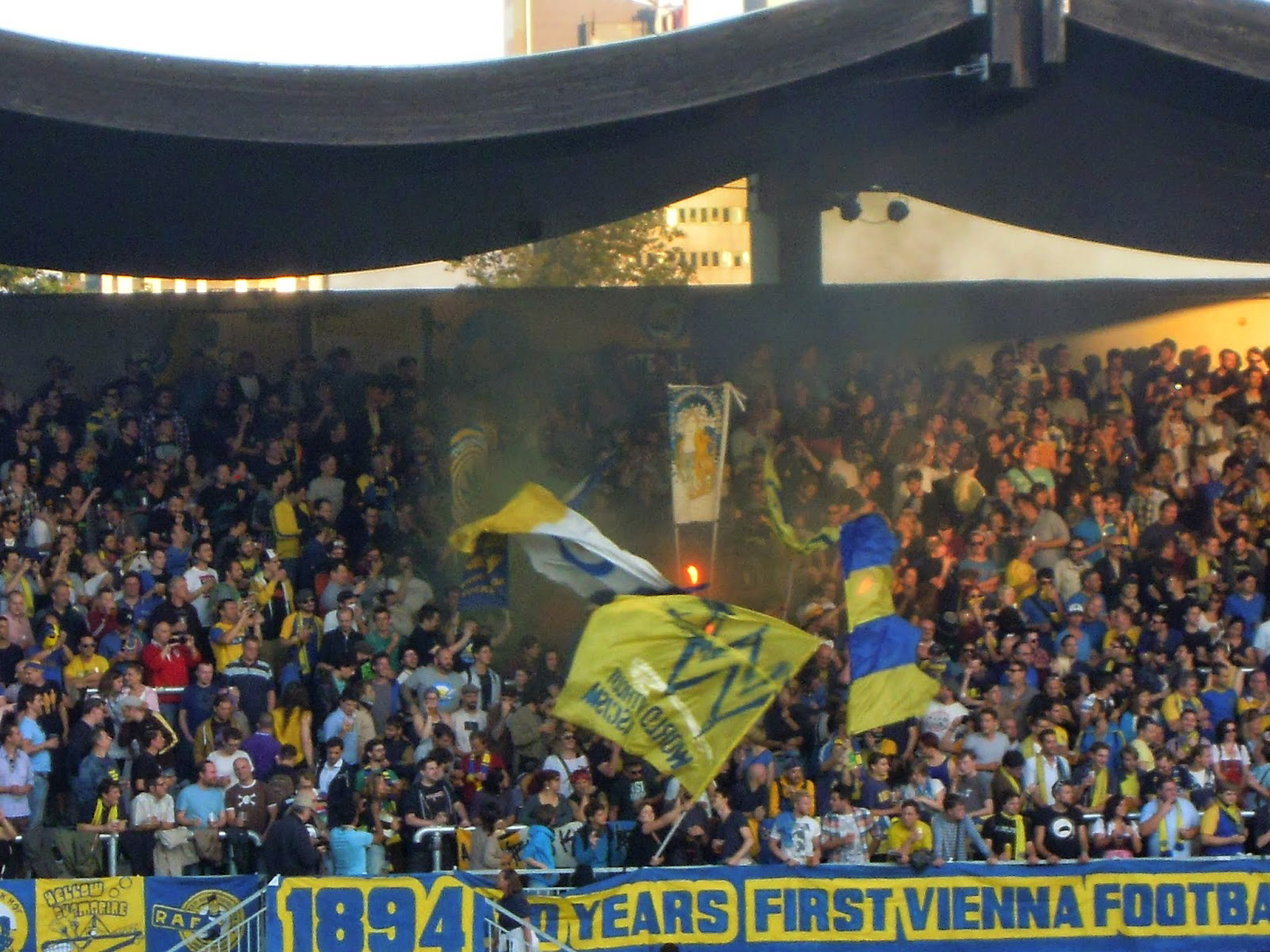

Simon Sturdee -
Vienna till I die!’” chanted the fans, in accented English, at a recent rainy match, testament to the British roots of Austria’s oldest football club: the once-mighty First Vienna FC 1894.
But while the few hundred diehard supporters give it their all week in week out, the now dilapidated terraces of what was once continental Europe’s biggest stadium may soon fall silent for ever.
In March, the 123-year-old club, which even under the Nazis was allowed to keep its English name “Vienna”, declared itself insolvent and is trying to hammer out a survival plan.
The players haven’t been paid since December and automatic relegation looms from Austria’s already lowly third division, the Austrian Regional League East, making finding new sponsors even harder.
“If it all ends, it will be the end of an era,” sighed Robert Haidinger, head of the supporters club, as he charged five euros ($5.50) for the trickle of cars arriving for the evening match.
“A piece of Viennese history would disappear,” he said.
Like elsewhere in Europe and beyond in the late 19th century, British immigrants were a major driving force in the birth of Austrian football.
The “Vienna” was founded, in a pub, in 1894 by British gardeners together with locals.
The club quickly became an all-Austrian affair but its three-legged logo, the triskelion, still survives in tribute to the homeland of one of the founders, William Beale from the Isle of Man.
To this day, many of the chants on the terraces are in English. “Hey ho let’s go,” says a sign, in English, on the way out of the ground.
“Vienna” used to be a force to be reckoned with not only in domestic football but internationally too. Visiting Spain in 1925, they thrashed Barcelona 4-1. Its Hohe Warte stadium, the biggest in Europe outside Britain when it opened in 1921, was also the home ground for Austria’s legendary national “Wunderteam”.
When Hitler, no fan of football, annexed his native Austria into the Third Reich in 1938, the club’s many Jewish players and functionaries were quickly expelled.
But from a sporting point of view the Nazi era went well for the Viennese. “It was one of most successful teams in World War II,” historian Alexander Juraske, author of a book on the club’s history, said.
In 1955, the club won the Austrian championship for the sixth and final time. But in 1992, it slipped out of the Bundesliga top league for the final time. — afp
Oman Observer is now on the WhatsApp channel. Click here



